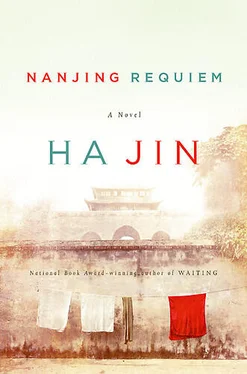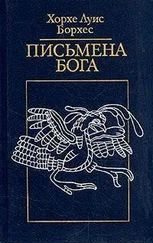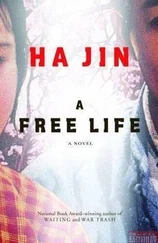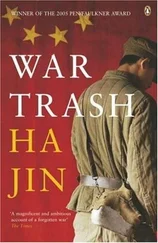Hundreds of men were coming to our camp, wanting to get registered here, because if they were accused of being former soldiers, some brave women, as instructed by me, would step forward and vouch for them, saying that the men were their husbands or sons. As a result, the officials would be likely to let them pass and give them the ID papers, a one-page document, five by three inches, folded down the middle, stamped with a scarlet seal, and printed with the characters Good Citizen Certificate . On the inside was information about the carrier and also his or her mug shot. The Japanese had been in charge of the registration originally, but it got more and more confusing, and it was hard, almost impossible, for them to tell who was a former soldier, so they left the whole matter in their puppets’ hands. The Safety Zone Committee urged all the refugee camps to participate in the registration as a gesture of “cooperation” with the new municipality. In addition, John Rabe and his colleagues all believed that it would be safer for the refugees to register in the foreigners’ presence, and therefore they told people to get the ID papers now.
Siemens had decided to close its Nanjing office by the end of February, so Rabe would be returning to Germany. His imminent departure caused quite a stir among the camps. He had been nicknamed the Living Buddha and was revered by the refugees. Some people called him Mayor Rabe, but he forbade them to do that, not wanting to antagonize the Autonomous City Government, which was eager to replace both the Safety Zone Committee and the International Red Cross Committee. For days Minnie and I had been thinking about giving him a farewell dinner, but it was impossible to get fresh meat and fish, so we decided to give a tea party instead.
It was like spring on February 17, balmy and cloudless. The refugees at Jinling hung their bedding in the sun while some girls mopped the floors and wiped the windows and doors of the buildings. The whole campus looked lively and colorful — laundered clothes and diapers were spread on evergreen hedges, making the place resemble a thickly settled village. The unkempt sight made me wonder how long the refugee camp would last. If Mrs. Dennison saw this, she might have a stroke.
I made a kind of fruitcake, using minced candied fruit, for the tea party in Rabe’s honor. We also opened the last box of chocolates in our pantry and placed it next to a tray of peeled tangerines and a bowl of canned pineapple. Rabe brought along two stout sausages, which we cut and placed next to a platter of cured duck. In addition to three German businessmen and eight American missionaries, John Allison, the second secretary at the reopened U.S. embassy, attended too. He’d done diplomatic service for five years in Tokyo and Kobe and spoke Japanese. Allison now functioned as the top American diplomat in Nanjing. Oddly, today he was escorted by a Japanese guard, a hulk of a soldier, as if he were under arrest. This was probably because a sentry had manhandled him a fortnight before and several newspapers in the West had reported the incident. Allison had returned to Nanjing six weeks earlier and was still shaken by the horrific condition of the city, particularly by the corpses scattered on the streets, some partly eaten by dogs and birds. He couldn’t understand why the Imperial Army, noted for its discipline, would kill so indiscriminately. The Germans in Nanjing — Rabe, Rosen, Sperling, and a few others — often made fun of his shock, calling him Allison in Wonderland.
On the round table sat a bowl of vegetable salad mixed with cellophane noodles and peanut butter, which all the guests liked. Most of them stood around chatting, with plates and forks in their hands. Big Liu proposed a toast, raising a cup of oolong tea and announcing with a smile: “Even if the Chinese are totally deprived, we still have fine tea.”
People raised their cups and drank to Rabe’s health and good fortune back in Germany. To my knowledge, Rabe wasn’t doing well in spite of his hardy appearance. He always carried a vial of insulin and a syringe in his pocket for his diabetes. Because he often had to climb out of bed in the dead of night to repel soldiers who attempted to break into his home or into the small compound of the German school, he’d feel sleepy during the day and nod off at times. Rabe was going to Shanghai first and from there sailing to Genoa, which would take more than four weeks; then he’d head to Berlin by rail. He had no idea what was in store for him back home. He told Minnie and Holly, “I’ll collapse by the time I join my children.”
Minnie apologized to Rabe for such a shabby party, without cheese or wine. We all knew he loved cheese and nowadays often groused to his cook about a cheeseless table. He even missed potatoes.
“This is wonderful and memorable,” Rabe said. “Thank you, Miss Vautrin.”
He had grown thinner lately, but still sported a small paunch. Holly often joked about him in private, “If he was single, I’d chase him to the end of the globe.” I’d say to her, “Oh, come now, he’s too old for you, not a good catch.” Rabe was fifty-five, older than Holly by a good fifteen years.
He and Lewis were quite close, having worked together on a daily basis since November. Lewis admired his large heart, his common sense, and his ability to get things done, while Rabe liked Lewis for his energy and unflagging enthusiasm for whatever he undertook. But the two of them wouldn’t stop chaffing each other. Lewis would call Rabe Rockefeller on account of the grand house, the headquarters of the Safety Zone Committee, where he stayed during the daytime. Whenever his loyal assistants, Han or Cheng, came in to hand Rabe a telegram, Lewis would quip, “From Hitler?”
Now, teacup in hand, Lewis came over and smiled quizzically, crunching popcorn. Rabe swatted him on the shoulder and said, “I know what you’re going to say: Hilter summoned me back. Right?”
“He must have a big job waiting for you,” Lewis said, his face straight. We chuckled, knowing Rabe was a leader of the Nazi Party in Nanjing.
“As a matter of fact, the Führer may not want to see me. Chancellor Scharffenberg was in the embassy the other day and summoned me. He chastised me, urging me to stop tangling with the Japanese. He stressed that what the Japanese were doing here should not concern us Germans, because he believed that the Chinese, once left alone to cope with the Japanese, would cooperate with them. I guess by now even Hitler might be tired of me.”
Minnie raised her teacup and said to Rabe, “John, regardless of your political persuasion, you’re a man I look up to.”
We touched cups with him and each took a mouthful. Then Robert Wilson came over, his balding crown pinkish, and rested his hand on Eduard Sperling’s shoulder. “John, I have something for you,” Bob said. Because the Japanese would let few medical personnel come into the city, for almost six weeks Bob had been the only surgeon in town. He actually lived at the University Hospital so he could work around the clock. His face creased a little as he smiled; he looked frazzled as a result of having to operate on patients day and night. Sometimes his hands got swollen from overwork, yet he had to continue.
“What’s that?” Rabe asked. “I hope it’s not another house. I cannot bring any real estate back to Germany, you know.” There’d been so many houses “given” to him recently that he was sick of them, because the owners also meant to have the properties protected by him, knowing he’d have to leave them behind when his stint here was over.
Bob touched a canvas satchel under the table with the side of his boot. “I have one hundred ampoules of insulin for you — don’t you want them?”
“Good Lord, I’m delighted,” Rabe said. “But don’t you need them for other patients?”
Читать дальше











